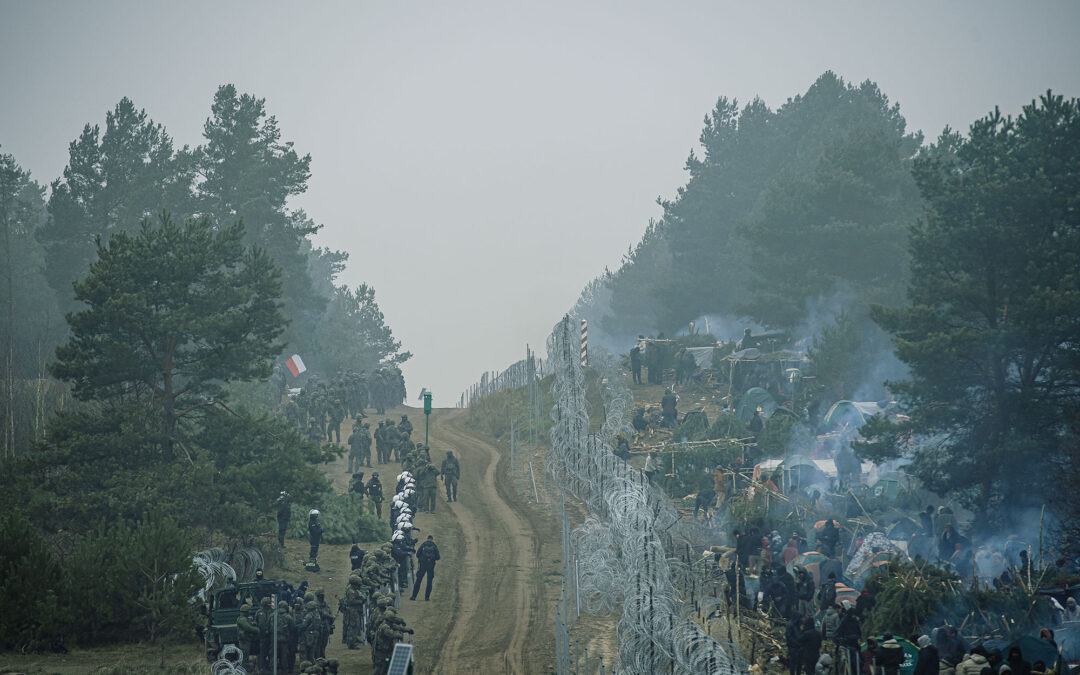Belarus’ intelligence agency, the KGB, used fake social media accounts to criticise Poland and fuel the crisis on the countries’ border, says Meta, the company formerly known as Facebook. The firm also found similar fake accounts originating in Poland, though did not identify their source.
In a report issued yesterday, Meta noted that it had removed 41 Facebook accounts, five Facebook groups, and four Instagram profiles that originated in Belarus. The people behind them had posed as journalists and activists from European Union countries, especially Poland and Lithuania.
The accounts – some of which had profile pictures generated by artificial intelligence – “posted criticism of Poland in English, Polish, and Kurdish, including pictures and videos about Polish border guards allegedly violating migrants’ rights”, said Meta.
In one post, a fake Facebook user wrote that Polish soldiers were “beating refugees with clubs” and refusing to accept “the refugees’ lawful requests to grant them the right of protection”.
The firm said that, as it was monitoring the ongoing crisis at the border – where tens of thousands of mostly Middle Eastern people have been seeking to cross into the EU from Belarus – it quickly identified the fake accounts as part of a network and removed them.
“Although the people behind it attempted to conceal their identities and coordination, our investigation found links to the Belarusian KGB,” revealed Meta.
The firm also announced that it removed 31 Facebook accounts, four groups, two events and four Instagram profiles that originated in Poland and targeted Belarus and Iraq.
The people behind the accounts used them to pose as migrants from the Middle East writing about the crisis at the Belarus border. Their aim was to dissuade others from entering the EU by writing about their own negative experiences and the difficulties migrants faced in Europe, according to Meta.
One of the fake accounts planned a protest event in Minsk, which Meta notes was reported in local media. Others wrote about alleged neo-Nazi activity in Poland and the country’s anti-immigration policies. Unlike with the profiles that originated in Belarus, Meta has not identified who may have been behind the Polish ones.
Poland, Lithuania and Latvia have since the summer seen tens of thousands of people try to cross their borders with Belarus. The Belarusian authorities have orchestrated the crisis, helping the migrants and refugees reach the border and then try to cross into the EU.
Numerous accounts have emerged of the Belarusian armed forces treating migrants violently. Poland has used water cannons and tear gas to stop people trying to force their way across the border.
This week, Poland passed a law that allows it to effectively extend a state of emergency at the border that has been in place since September. The European Commission, which has supported Poland and the Baltic states during the crisis, yesterday proposed tougher new asylum rules to help those member states deal with the crisis.
Main image credit: Irek Dorozanski / DWOT (under CC BY-ND-NC 2.0)

Daniel Tilles is editor-in-chief of Notes from Poland. He has written on Polish affairs for a wide range of publications, including Foreign Policy, POLITICO Europe, EUobserver and Dziennik Gazeta Prawna.




















